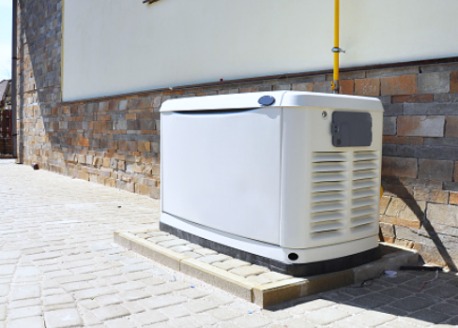Things to Consider Before Buying a Backup Generator
 While most big institutions, like hospitals, have been using backup generators for years, not all houses come equipped with one. With power cuts becoming more frequent, many homeowners are now turning to backup generators to keep their appliances running. Since there are many models you can choose from, you might not know what the best ones are if it is your first time buying a backup generator.
While most big institutions, like hospitals, have been using backup generators for years, not all houses come equipped with one. With power cuts becoming more frequent, many homeowners are now turning to backup generators to keep their appliances running. Since there are many models you can choose from, you might not know what the best ones are if it is your first time buying a backup generator.
Now, there are many aspects when it comes to buying a generator, from fuel to portability. For instance, consulting a trusted provider like Great Valley Propane (https://www.gvpropane.com/) and similar other entities can help you better understand your energy and fuel needs, thereby ensuring that the right generator is chosen for your home. Additionally, exploring features such as fuel efficiency and noise levels can ensure a more seamless integration into your daily life. To make an informed decision and get the best bang for your buck, check out the next few considerations that you should keep in mind when looking for a backup generator.
Frequent Usage
Power outages are an inconvenience, but do you need a generator? If your area experiences blackouts once in a blue moon, there is no need to get one. Backup generators are not exactly cheap, so you should not be splurging on something you will barely use. On the other hand, if the power cuts off in your neighborhood at least once a month or more, then you certainly need a backup generator. Assessing your needs and knowing why you are buying a generator in the first place can go a long way towards helping you save some money by finding the best model.
Fuel Type
Just like other machines, back generators use a wide array of fuel types to run. Most shops usually offer backup generators that run on diesel, gasoline, or liquid propane. Based on the information you can find when you go to site references related to this, diesel generators are commonly known to be more economical, as they do not use much fuel. They are also not prone to damage, which makes them a great long-term investment. Propane generators have similar advantages as well, but unfortunately, propane can be somewhat hard to come by unless you happen to have access to a reliable propane gas delivery service such as Nelson Propane Gas so you can fill up your generators tank. Finally, gasoline generators are the cheapest of the bunch. However, gasoline is generally not safe to store, as it is a highly flammable material and can cause explosions.
Portability
Not many people consider portability when they are on the hunt for a backup generator. Nonetheless, it might be an aspect you should look into in case you are a fan of going on frequent camping trips. Based on their features, there are two main kinds of backup generators: portable and standby. Portable generators are usually a perfect choice if you plan on taking your generator with you on trips or just want to operate a few home appliances at a time. They often weigh up to 50 lbs., which can seem too heavy for a “portable” generator. However, they are relatively light when put side to side with their heavier standby counterparts. Standby generators are in no way portable, but they are more reliable and favored by homeowners who are sick of dealing with frequent power cuts. These generators cannot be moved and become a fixed part of your house when installed. Despite their weight, standby models are popular because they can power up all the appliances in one’s house at the same time.
Price
As mentioned before, generators are not cheap, so you need to have a budget when shopping for one. Standby generators are more expensive than portable ones because they can power up a whole house. Nevertheless, the price of the generator itself is not the only thing you should keep in mind, as you also have to factor in the price of the fuel powering the generator. Gasoline is cheaper and easy to come by while liquid propane is expensive and hard to find. If you want to enjoy the best of both worlds, you should consider opting for a diesel-powered generator since diesel is easy to find and is not too expensive.
Noise
Let’s be realistic, if you want to run all your home appliances at once, you should expect your generator to be a bit noisy. Noise is not necessarily a bad thing because it can give you a hint of how powerful your generator is. Yet, that does not mean you should settle for an extremely noisy model. Standby generators, especially the models that run on gasoline, are louder than portable ones. On the contrary, liquid propane and diesel generators are quieter. So, if you need a reliable, quiet standby generator, go for a model that runs on diesel or propane.
Having a backup generator at your disposal can help you avoid fumbling in the dark to light a candle or find your trusty flashlight. Because generators do not come cheap, you need to have a solid idea of your needs before you buy one. To get the best deal, read customer reviews, and compare different models based on the criteria mentioned above. Most importantly, take your time to factor in all the costs of the model you have chosen.